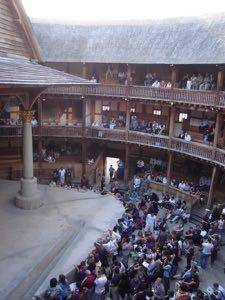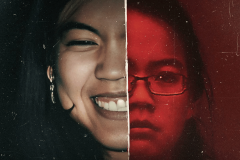The first “original pronunciation” production of a Shakespeare play to ever be staged on American soil opens at the University of Kansas Theatre on November 11, “A Midsummer Night’s Dream.”

According to Paul Meier, a dialect coach and drama professor at the University of Kansas, the fact that the pronunciation is also the first American accent reclaims a playwright the country’s always loved but has always felt was irretrievably foreign.
See video of rehearsals in OP and Meier’s multimedia brochure after the jump.
Not only is this the first U.S. production in OP, it is only the fourth since work on reconstructing the language began. The first production took place in the U.K. in the 1950s, the other two in the rebuilt Globe Theatre in London.
How was the pronunciation reconstructed? Well, since Shakespeare was a reasonably accomplished poet, scholars and linguists eventually figured that if he rhymed a pair of words, they probably were supposed to rhyme, especially if they didn’t appear to be an aberration. But since quite a number of them didn’t, they figured the pronunciation had changed. Linguists keep track of shifts and drifts in the way words are pronounced, so it was a matter of using those data sets, along with some sensitivity to language, to identify the most likely pronunciation of each of the supposed-to-rhyme words, that would make them rhyme again. Meier chose “A Midsummer Night’s Dream” because it had more deviated rhymes than any other Shakespeare play.
OP is familiar to an American ear, but odd given several centuries of very stylized and “full voice” pronunciation.
“American audiences will hear an accent and style surprisingly like their own in its informality and strong r-colored vowels . . . The audience will hear rough and surprisingly vernacular diction, they will hear echoes of Irish, New England and Cockney.”
Meier has created a .PDF brochure with embedded sound files: “The Original Pronunciation (OP) of Shakespeare’s English.”
Rehearsal
Meier on OP
If it kills you that you can’t make it to the KU Theatre this month, my condolences fellow weirdo. But fear not, as the cast will be recording a radio version to be broadcast on Kansas Pubic Radio.
Additional sources include The History Blog and Physorg.com | Globe photo by Ianus





















